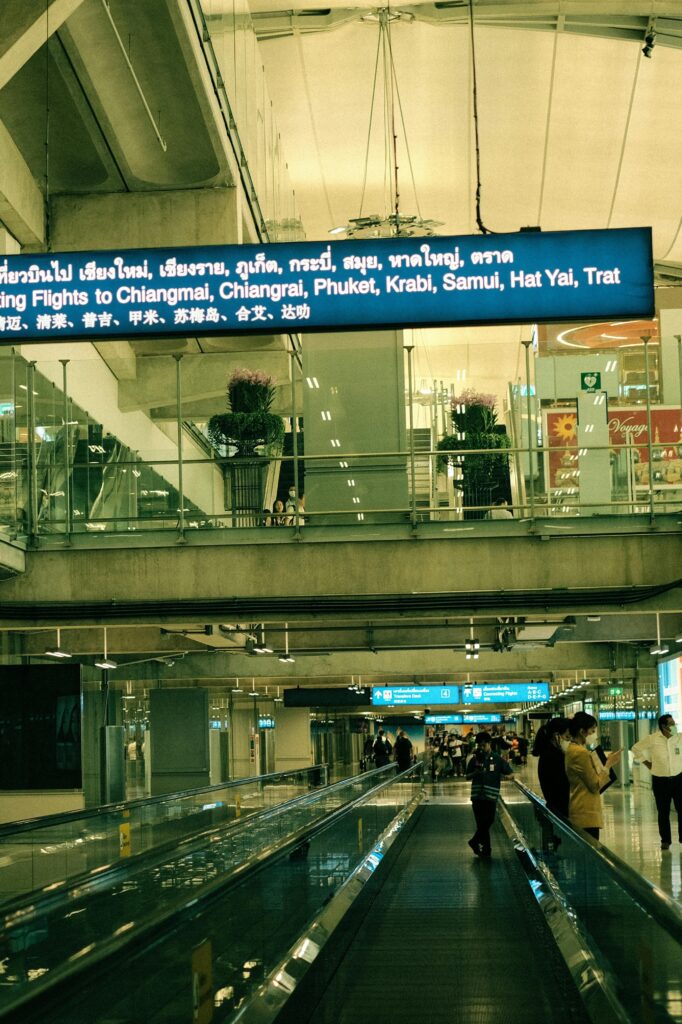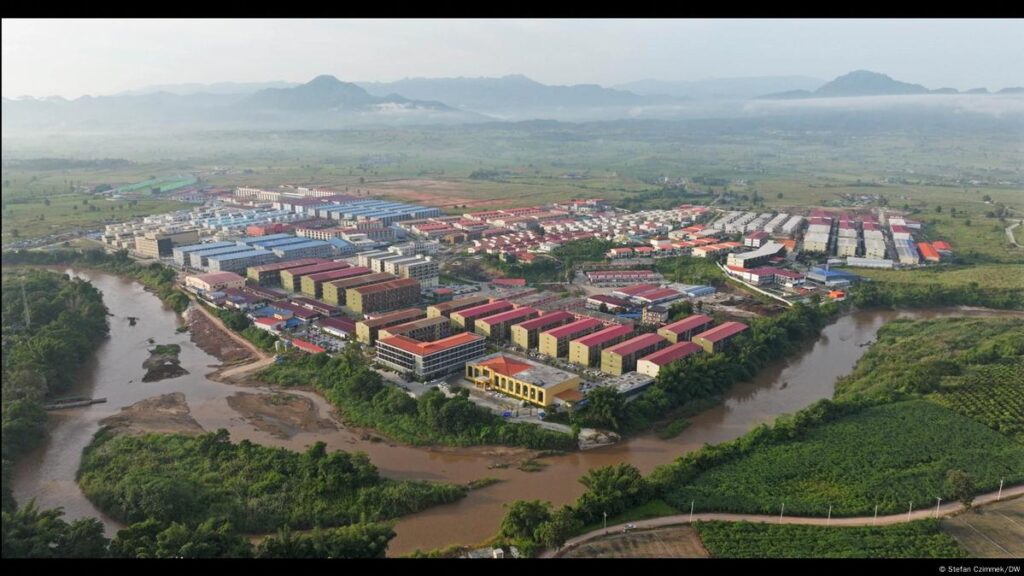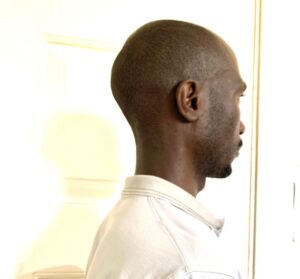← Back to Stories
RM's Story
RM, a single father supporting his two children and his mother, accepted a promising job as a teacher in Thailand. Instead, he was taken across borders by armed men and forced to scam in a massive remote compound in Myanmar under threat of torture.
*Name has been changed to protect the survivor’s identity.
I. Opportunity Becomes Deception

In Uganda, RM* was a professional mechanical engineer with a Bachelor of Science in Mechanical Engineering. He worked hard, but it wasn’t enough.
“I have two boys, I’m a single father. We were living with my mom.”
RM dreamed of stability and happiness for his family—and when a new job opportunity finally came along, it seemed like the answer he had been waiting for. The posting was for a teaching position in Thailand, one that paid far more than RM’s job in Uganda. Though he would be far from his family, this was the chance they needed to rise above poverty and build a better future.
The recruiter “helped” RM arrange the travel, telling him that he would obtain his work visa upon his arrival in Thailand. But when RM landed in Bangkok, there was no visa, no clear guidance, only confusion and deception.
RM’s supposed new workplace sent a driver to pick him up. They drove for hours before stopping at a remote and overgrown area where another man was waiting for them. RM began to grow concerned. But there was nothing around them and nowhere to go. The men took his luggage and escorted across a nearby river. Once they were on the other side, there was another car waiting for RM. The men commanded him to get in. They rested a gun behind his seat. RM’s heart pounded, but he kept quiet. Outside, the environment grew more and more remote. They were a long way away from anyone who could help him.
After a brutally long drive, they arrived at a compound where he saw rows of people working silently at computer stations. The men finally revealed the shattering truth about the teaching job RM was promised—it didn’t exist. He was there as another victim of criminal syndicates exploiting thousands to work in a massive online scam operation. These operations often lured highly educated individuals like RM, ones who could speak English, luring them with jobs that fit their skillsets.
II. Brutal Conditions at the Scam Compound

The bosses instructed him to pretend to be a young, beautiful woman. Under threat, he was ordered to chat with wealthy men, send fake intimate photos, and manipulate them into transferring money.
“They give you a target—a client. A person you would chat with for three days first, and on the fourth day, you go into the process of scamming him, promising him more money in return for money he brings in. At first, you let him receive 35 dollars as promised. Then you go into the same process the next day. He brings in some money like 160 dollars then he gets 270. At some point, he ends up receiving back 300 dollars so he really feels the money is real. Then you could get more. You have to do that seven times to seven people.”
Each day, RM and others who were forced to scam had to meet a strict financial quota. Falling short meant brutal physical punishment.
“They take a jerry can, fill it up—this twenty liter can of water you have to put on your shoulder for one hour while standing. In some cases they make you squat while the jerry can is on your shoulder. You squat for one hour. In severe cases, they put painful things under your feet while you’re squatting, to make you feel more pain standing on that piercing thing. If you drop the can, they take you to a dark room where their soldiers beat you.”
Horrific living conditions added to the torture. Often, RM went without food and was forced to start work at 4 a.m. every day. At one point, he collapsed from exhaustion. This made his bosses angry. They forced him to sleep on the floor and warned that, if he failed to meet his daily target, he would owe them an exorbitant debt.
III. Comfort in Community
Despite the dire circumstances, RM found some comfort in the company of other Ugandans. They would help each other keep up with the brutal sleeping schedule, waking each other to avoid the physical punishment for oversleeping.
“What we would do was to make sure that our neighbors in the other rooms would wake up when it was time to go and start work. Even if you were late for one minute, it would result in punishment. We would work as friends. As neighbors.”
One day, one of the friends woke everyone up. But it wasn’t to start the work day. Help had arrived.
“I wouldn’t imagine any time I would be out of that place. We had never seen any Ugandan leaving that place before. We were the first people leaving that place. I am happy that I came back alive. I have friends who are still there. I am okay, but others have complications. I know I can start from anywhere and I’m going to be back to normal because I have supporters, I have the EverFree people who are talking with me and encouraging me.”

IV. The Journey Continues at Home
After a long process of repatriation, and support from a collaboration between dedicated partners and human rights organizations, RM made it back home and was reunited with his family. Now enrolled in EverFree’s programs, he receives comprehensive case management, individual and family counseling, as well as the support he needs to find a safe and sustainable source of income.

“I have tried to catch up with life. EverFree takes me through sessions. Before, when I was coming back to Uganda, my mind was: ‘Where am I going to start? What am I going to do? How am I going to survive with my kids?’ But with EverFree, they are taking us through different programs. Before, it was like we were being brainwashed when we were in those scamming areas, but now it’s like EverFree is trying to bring our minds back so that we can go and live a normal life.”
RM’s exploitation at the hands of organized criminal syndicates reveals a disturbing truth: exploitation isn’t confined to back alleys or factories—it now thrives in the digital spaces we use every day. His story underscores how exploitation has adapted to modern times, at a scale never seen before.
“I wish—for the authorities anywhere in the world—what they can do is regulate the apps, the tech. Those are the tools these guys are using. If there is any government who can regulate this tech, that would weaken those guys. These scammers—it’s like they are invisible.”
RM is one of thousands exploited through Myanmar’s scam compounds—sites of brutal, organized abuse. While many still wait for repatriation and support, RM’s journey home is a testament to what’s possible when we act together.
Through a deeply coordinated effort between human rights organizations and our dedicated partners, RM and other survivors are finding freedom and healing in EverFree’s care.
